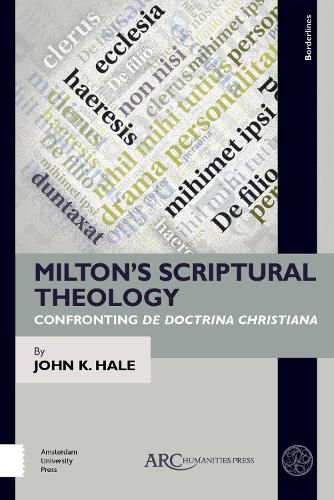Readings Newsletter
Become a Readings Member to make your shopping experience even easier.
Sign in or sign up for free!
You’re not far away from qualifying for FREE standard shipping within Australia
You’ve qualified for FREE standard shipping within Australia
The cart is loading…






Milton spoke of De Doctrina as my best and most precious possession (haec, quibus nihil melius aut pretiosius habeo). In this book, John K. Hale confronts De Doctrina as Milton’s best , and in many senses personal, contribution to theology. Its theology is distinctive in several unorthodoxies, and their zestful advocacy; and in some orthodoxies too, like his measured account of Predestination. At the very least, De Doctrina is Milton’s one and only worked-out Credo. And it figures, albeit belatedly, in histories of the great mid-century Trinitarian debate: it is on the wider map of theology; it counts.
Through close reading of the Latin itself, the author assesses the work and its aim, its degrees of success and its by-products, as these reveal Milton at his personal best. While to a candid appraisal-or to historians or methodologists of theology-his best might not seem the very best ever, this work remains unutterably precious to Milton, and close reading reveals the passion and energy of his mind in its acts of thought. To understand the personal dimension of Milton’s theology is to understand, and evaluate, his mind in action.
$9.00 standard shipping within Australia
FREE standard shipping within Australia for orders over $100.00
Express & International shipping calculated at checkout
Milton spoke of De Doctrina as my best and most precious possession (haec, quibus nihil melius aut pretiosius habeo). In this book, John K. Hale confronts De Doctrina as Milton’s best , and in many senses personal, contribution to theology. Its theology is distinctive in several unorthodoxies, and their zestful advocacy; and in some orthodoxies too, like his measured account of Predestination. At the very least, De Doctrina is Milton’s one and only worked-out Credo. And it figures, albeit belatedly, in histories of the great mid-century Trinitarian debate: it is on the wider map of theology; it counts.
Through close reading of the Latin itself, the author assesses the work and its aim, its degrees of success and its by-products, as these reveal Milton at his personal best. While to a candid appraisal-or to historians or methodologists of theology-his best might not seem the very best ever, this work remains unutterably precious to Milton, and close reading reveals the passion and energy of his mind in its acts of thought. To understand the personal dimension of Milton’s theology is to understand, and evaluate, his mind in action.